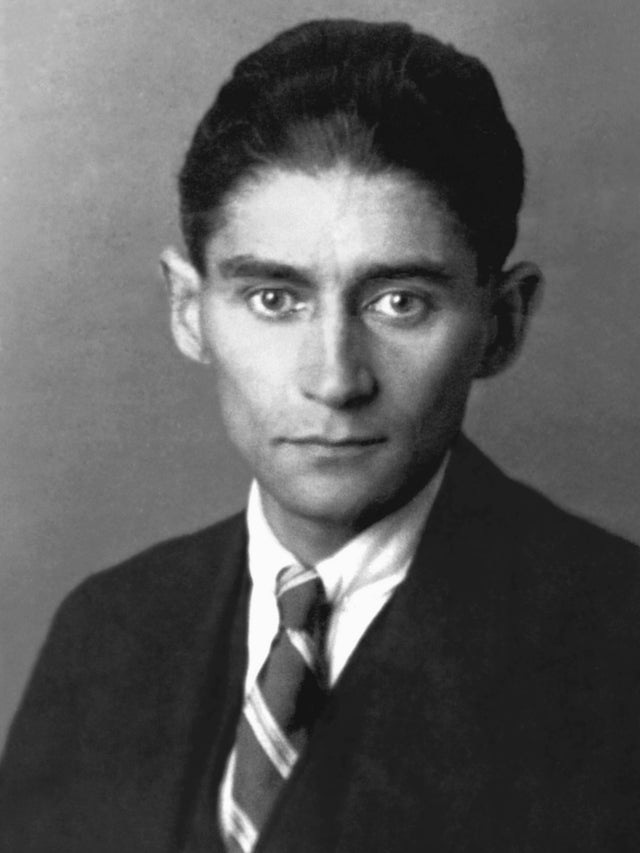Resonance of the Unnoticed: Franz Kafka, A Mind Beyond Success
Photo by Đăng Nguyễn on Unsplash
A Czech writer born in 1884, who lived to be only 40 years old, Franz Kafka was perhaps one of the greatest storytellers of human existence and its paradoxes in the 20th century—a true invisible genius of his time. He left behind an oeuvre that captures the absurdity of individuals navigating bureaucratic and capitalistic societies, a theme that remains strikingly relevant today and gave rise to the term 'Kafkaesque.' Kafka’s unfortunate life circumstances are reflected in his lack of widespread recognition during his lifetime, his struggle to balance his passion for writing with a mundane job in insurance, and his complex relationships with a domineering father and romantic partners who often struggled to understand his inner world.

'Franz Kafka's Houses and the Battle of the Old Town Square' on Our Beautiful Prague
One of the reasons Kafka remains so relatable is that he was a great mind who embodied the weight of societal pressures, family expectations, and an inner struggle with himself—while remaining, above all, profoundly mortal. His philosophy reflects the hero within us who never emerges as a champion, the artist whose work is never displayed in a gallery, and the genius whom no one acknowledges. Take one of his masterpieces—and arguably his most well-known work in existentialism—The Metamorphosis, with its iconic opening line: 'As Gregor Samsa awoke one morning from uneasy dreams, he found himself transformed in his bed into a gigantic insect.' This surreal metaphor vividly reflects the sense of powerlessness and struggle that so many feel each morning—a metaphorical awakening to the burdens of existence, societal expectations, and the often alienating routine of life.
Moreover, in The Trial, Josef K., a Chief Bank Clerk, is arrested without reason or evidence of wrongdoing. He becomes a convict without conviction, battling an unknown authority and unseen powers in a corrupt judicial system. Kafka masterfully depicts the helplessness of the individual against an incomprehensible and oppressive bureaucracy, a theme that mirrors the absurdity of some societal frameworks many experience in modern society. His philosophy revolves around the struggle to find meaning in a meaningless world, depicted through protagonists who confront authorities and arbitrary rules in society. A central component of his work is the inner turmoil his characters often face, caught between their desires and the expectations imposed upon them.
Photo by the blowup on Unsplash
Throughout his writing endeavors, Kafka left behind many unfinished works, including The Trial, The Castle, and Amerika, which he deemed unworthy. Like many geniuses, he was entrapped by an immense pursuit of perfection. Those who possess great knowledge often suffer the paradox of believing they are never great enough by their own standards.
 Photo by Rocío Perera on Unsplash
Photo by Rocío Perera on Unsplash
Honoring a Great Mind
An ironic twist of fate ensured that Kafka’s genius would not be lost forever, thanks to the intervention of his friend, Max Brod. Despite Kafka’s explicit instructions for his manuscripts to be destroyed, Brod preserved and eventually published them. On his deathbed, Kafka entrusted Brod with his unpublished writings, asking him to burn them. Yet Brod, recognizing the profound value of Kafka’s work, chose to disregard his friend’s wishes. Instead, he edited and published Kafka’s unfinished novels, including the three mentioned above. This act of defiance safeguarded Kafka’s legacy, allowing his ideas to resonate with generations far beyond his time.
Drawing inspiration from Kafka’s enduring impact, NICO’s Founder and Creative Director, Boat, sought to honor this great mind through design while expressing the essence of what NICO furniture represents. The Kafka Chair was created not only as a functional object but also as a tribute to Kafka’s philosophy—a reflection of the complex, layered, and often paradoxical nature of existence that his works encapsulate so profoundly.
Kafka Chair, © NICO Furniture, 2023
This design also pays homage to those, both past and present, who struggle to emerge as champions in their own lives—individuals fighting daily battles, unseen yet resilient. Inspired by the insect motif in The Metamorphosis, the Kafka Chair transforms the unsettling and surreal into something beautiful, finding elegance in what might initially appear unconventional. Its clean lines and unique structure celebrate the resilience and beauty of transformation, offering a profound commentary on the human condition.
The Kafka Chair – A Testament to Kafka’s Philosophy
The Kafka Chair is intended to be a physical embodiment of Franz Kafka’s philosophy—a reflection of the struggles, resilience, and paradoxes that define the human condition. Just as Kafka’s works delve into the alienation and absurdity of existence, the chair invites contemplation of those same themes, urging us to consider the invisible battles we all face in our daily lives.
This design aims to capture the essence of transformation, inspired by the unsettling yet profound metamorphosis central to Kafka’s storytelling. It stands as a quiet homage to those who endure, adapt, and persist in a world that often feels overwhelming.
At the same time, it serves as a reminder: if you find yourself in the position of a Max Brod to someone else’s Kafka, do not let their brilliance go unnoticed. Be a younger Brod—cherish your friend, recognize their potential, and help them excel to their fullest. In honoring Kafka’s legacy, the Kafka Chair reminds us of the strength it takes to live in the tension between what is and what could be—a tribute to the human spirit and the enduring power of ideas.
------------------------------------------------------------------------









